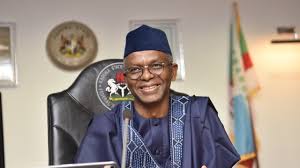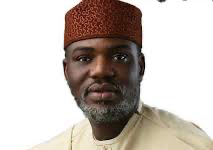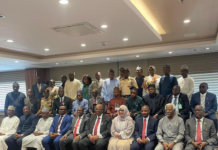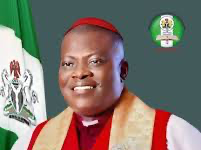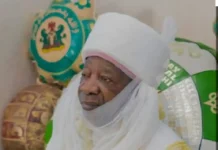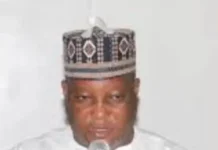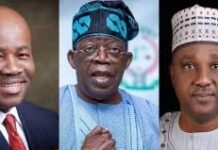El-Rufai: Is Kaduna Strongman Returning to Fix FCT or Somewhere Else? By Ozumi Abdul and Farida Mohammed Umar
POLITICS DIGEST- After weeks of frenetic hysteria by Nigerians who were anxiously expecting the ministerial list of President Ahmed Bola Tinubu – before the 60 days constitutional window for any Nigerian president to nominate members of the Federal Executive Council, FEC, is shut – absolute tranquility has now pervaded the nation’s ‘chaotic’ polity.
Names of 28 ministerial nominees were last Thursday forwarded to the Senate, and expectedly the immediate-past Governor of Kaduna state, Mallam Nasiru El-Rufai, was included.
So, if eventually the portfolio of the Minister of Federal Capital Territory (FCT) is allocated to him after the strenuous ‘back and forth’ of him accepting or not the nomination, then one would be cut some slacks for assuming that there is a striking similarity between the biblical prodigal son mentioned in Luke 15-11 and the ‘strongman’ of Kaduna politics.
The similarity will be that both of them (the scriptural prodigal son and El-rufai) return to their respective “comfort zones”, though on different adventures and with different purposes.
While the former returned home, like Oliver Twist to ask for more, having earlier demanded for his inheritance, ran off and squandered the wealth “in wild living”, but thereafter finds himself in the midst of a severe famine, the later will be returning because of the popular demands, cry and hues of the FCT residents.
They are demanding that he should come back to fix the nation’s capital, because they are unanimously of the opinion that the FCT was at its best when the Kaduna strongman was its Minister, or Governor if you like.
Corroborating the claim of the FCT residents is Akinwumi Adesina, President of the African Development Bank (AfDB), who said he doubted if the FCT would ever have a Minister with developmental strides as El-Rufai.
Adesina stated this in Ibadan last November at the commemoration and send-off ceremony organized for Nteranya Sanginga, the former Director General of the International Institute for Tropical Agriculture (IITA).
Recall that after declining several offers to join the public sector, in 1999 Nasir El-Rufai was appointed by President Olusegun Obasanjo as the Director General of the Bureau of Public Enterprises, BPE, and Secretary of the National Council on Privatization.
During Obasanjo’s second term, he served as a member of the Economic Management Team and took over as Minister of the Federal Capital Territory (Abuja), where he championed key civil service reforms and undertook the computerization of Abuja’s land register.
While El-Rufai serving as the Minister of the FCT, with his raw energy, doggedness, uncommon intellect, clarity of thought and purpose and even-handedness, he restored the Abuja Master Plan.
In fact, President Obasanjo who appointed him into that position in 2003, later confessed that he head-hunted El-Rufai for the job because he knew that only a ‘mad man’ could sanitise the FCT Ministry and the Federal Capital Development Authority (FCDA), which were then notorious as bastions of corruption, ineptitude and land racketeering
Read Also:
Assisted by a dedicated team, El-Rufai practically reworked Abuja and incredibly restored the FCT’s original master plan.
Undoubtedly, one can aver without mincing words that till date, his record as the Minister of the FCT remains indelible and of course unequalled.
It is an uncontestable fact that the best administration or measure that mitigated the spiralling decay in the FCT was the Obasanjo/El-Rufai partnership between 2003 and 2007.
The partnership confronted the corruption, impunity and recklessness that they had met entrenched in the system, with the adoption of a “no-nonsense” and “no friend-of-the-status-quo” approaches to achieve results.
Mallam El-Rufai also developed and perfected a system that was on its way to making Abuja a truly Modern Capital City like Johannesburg and Abu-Dhabi.
As an outsider to the political scene, he managed to advocate for privatization, eventually drafted and implemented a concrete multi-stage plan. El-Rufai identifies the “easy” cases for privatization as companies that are (1) already listed on the stock exchange, (2) easy to value, (3) already operational in competitive markets, and/or (4) not politically contentious.
In contrast, the “hard” cases require progressive policy reform, including regulatory sector review, enactment of legislation for independent oversight, implementation of anti-trust measures and, notably, the creation of a pension system.
In dealing with trade unions and special interest groups, El-Rufai highlights the importance of legal tools and the support of the media, the general public and figures with considerable political capital, such as Obasanjo and then Vice President Atiku Abubakar.
During Obasanjo’s second term, El-Rufai joined the Economic Management Team that successfully renegotiated the Nigerian external debt and pursued wide-ranging reforms.
In fact, he once attributed the success to the trust, sacrifice and synergy established within the team; their capacity to understand and integrate Obasanjo’s political goals into a reform plan; and their ability to capitalize on the then booming oil prices by using revenues to strengthen fiscal rule.
Under El-Rufai, the FCT witnessed a remarkable face-lift and not only was infrastructure maintained, but there were also new ones put in place. There was also the provision of mass transit buses, ridding the streets of beggars and hoodlums, restoring “green areas” by demolishing structures on waterways and there were efforts to make the territory largely safe.
Though many residents did not like El-Rufai’s methods at the time, but having now realized his unmatched impacts as FCT minister, they are demanding for his return, because what he attained in terms of development in the territory cannot be easily erased. The FCT had some sanity under his stewardship.
Indeed, Kola nut lasts long in the mouth of those who value it, and this reason perhaps is why many Abuja residents have been curiously agitating for El-Rufai’s return as FCT Minister. They would no doubt erupt in ecstatic merriment if President Tinubu eventually heeds their plea.
But credible sources in Tinubu’s kitchen cabinet have concluded that the immediate-past Kaduna Governor may not be returning to his familiar terrain. Rather, he will become the new Sheriff in either the Power or Work Federal Ministry, to consolidate his infrastructural development strides in the FCT some years ago, and in Kaduna recently.

